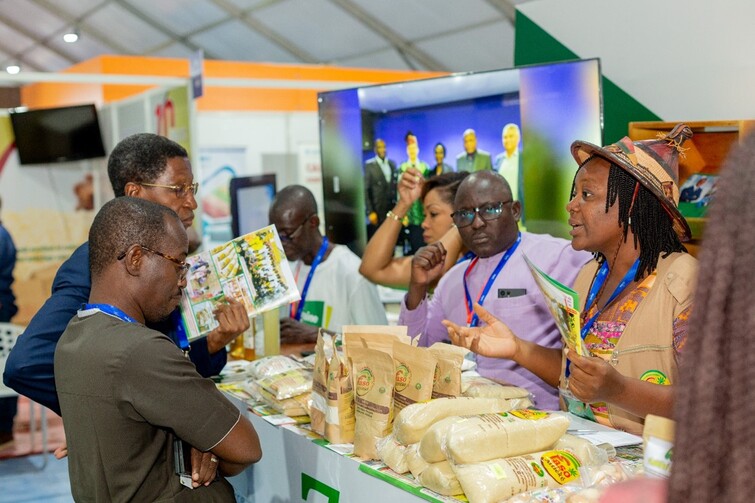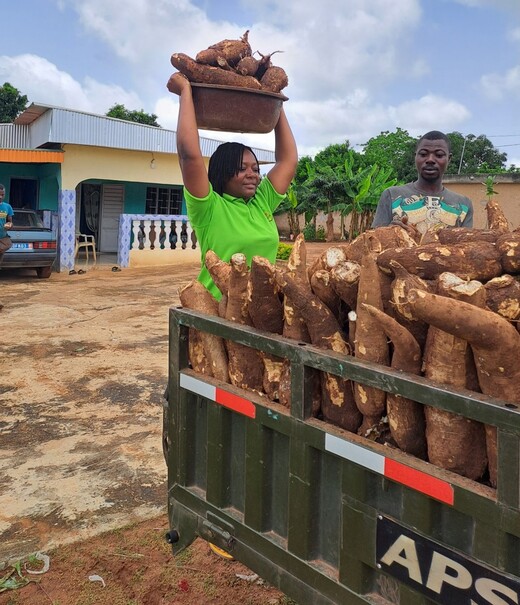Mrs. Florence Bassono's Success Story Unlocking the Potential: Empowering Regional Agricultural Trade in West Africa
Step into the vibrant markets of Burkina Faso, where Mrs. Florence Bassono sells Attieké, a cherished West African staple derived from cassava. While Burkina Faso and its neighbors are part of Economic Community of West African States (ECOWAS), which aims to facilitate free trade, challenges like inadequate infrastructure and opaque regulations hinder the potential for agricultural trade.
Only 10% of the region's total agricultural exports are exported to ECOWAS Member States. The intra-regional agricultural trade is significantly lower than in other regions of the world and remains an untapped opportunity.
Agricultural trade as a win-win-win
To promote agricultural trade in the ECOWAS Region, the German Federal Ministry for Economic Cooperation and Development (BMZ) is funding the regional ECOWAS Agricultural Trade (EAT) project, which is being implemented by GIZ in cooperation with the ECOWAS Commission and the Directorate for Agriculture and Rural Development.
The EAT project supports regional agricultural traders and has enabled Mrs. Florence Bassono and other traders from Benin, Côte d’Ivoire, Ghana, and Nigeria to exhibit at one of West Africa's largest agricultural trade fair in Côte d'Ivoire in September 2023.
Successfully- Mrs. Florence Bassono was able to sell her entire stock during the fair and also concluded five long-term supply contracts with companies from Benin, Niger, Togo and Morocco. Her success illustrates the transformative power of regional agricultural trade, fostering economic growth, job creation, and affordable prices for consumers. Mrs. Florence Bassono now has a multilingual website and an expanding customer base spanning several countries, her journey exemplifies the potential for cross-border market penetration and growth.
With a population of around 420 million people, high population growth rates, different agricultural conditions and harvest times, regional agricultural trade has enormous potential for ECOWAS. And in the context of increasingly frequent extreme weather events such as floods or droughts, which lead to harvest shortfalls, the relevance of trade continues to grow. Thanks to trade, supply shortages can be buffered by imports from spared neighboring regions.

